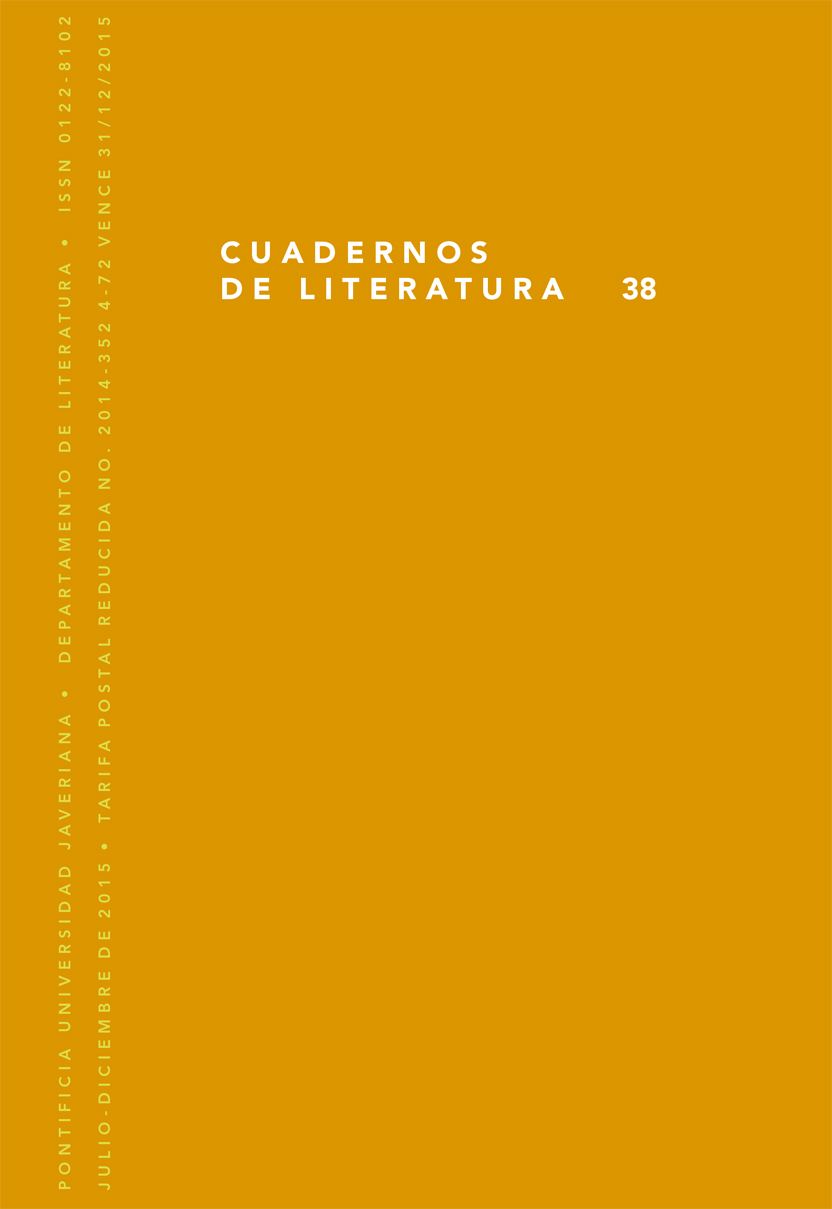Abstract
En la novela Negrojudio en país madre de Ellen Ombre se trata de memorizar toda la trayectoria de la descendencia familiar a partir del presente hasta finales del siglo XVIII del carácter principal femenino. Las retrospectivas se realizan a lo largo de la descripción de un día en su vida en Amsterdam en 2000, cuando ella se separa de su marido. La coincidencia de las orientaciones religiosas judías y cristianas se van alternando de acuerdo con la progresión de la narración demostrando sus asociaciones diferentes de status social en una sociedad con pasado esclavista.Cuadernos de Literatura is registered under a Creative Commons Attribution 4.0 International Public License. Thus, this work may be reproduced, distributed, and publicly shared in digital format, as long as the names of the authors and Pontificia Universidad Javeriana are acknowledged. Others are allowed to quote, adapt, transform, auto-archive, republish, and create based on this material, for any purpose (even commercial ones), provided the authorship is duly acknowledged, a link to the original work is provided, and it is specified if changes have been made. Pontificia Universidad Javeriana does not hold the rights of published works and the authors are solely responsible for the contents of their works; they keep the moral, intellectual, privacy, and publicity rights.
Approving the intervention of the work (review, copy-editing, translation, layout) and the following outreach, are granted through an use license and not through an assignment of rights. This means the journal and Pontificia Universidad Javeriana cannot be held responsible for any ethical malpractice by the authors. As a consequence of the protection granted by the use license, the journal is not required to publish recantations or modify information already published, unless the errata stems from the editorial management process. Publishing contents in this journal does not generate royalties for contributors.


